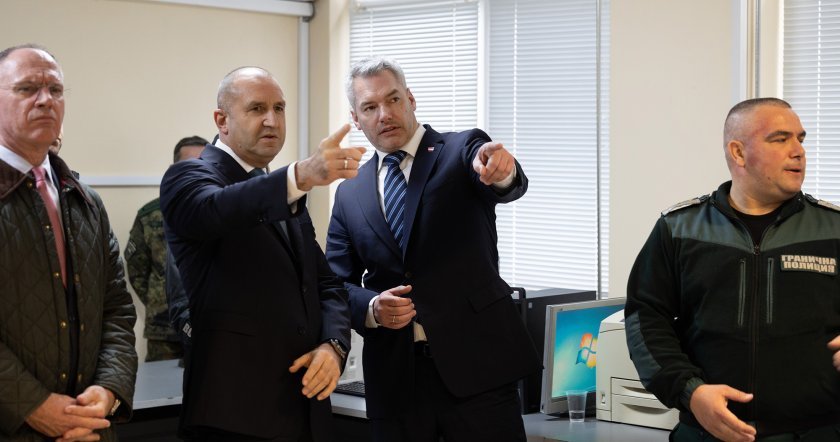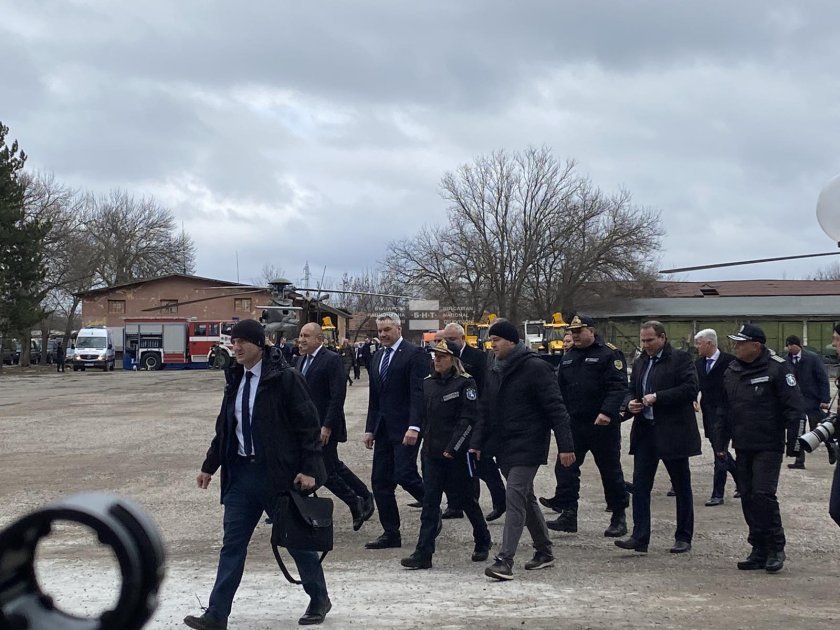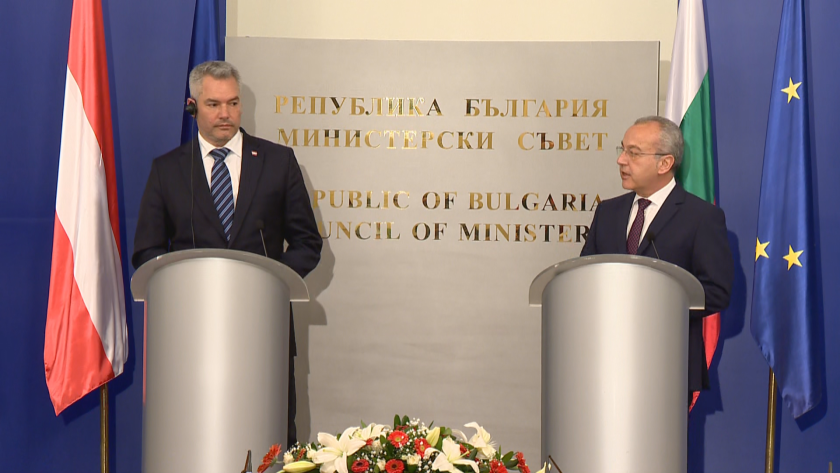
Bulgaria is doing well in the protection of the border, but Austria remains opposed to the country’s enrty to Schengen. This position of the Austrian chancellor remained unchanged after he inspected the Bulgarian-Turkish border from the air on January 23. This was also expected after yesterday, before the visit to Bulgaria, Karl Nehammer explained that he would not change his position until Schengen solved its problems. Moreover, today he said that Schengen is in crisis and is not functioning after border control between Germany and Austria has been re-introduced since 2015.
However, the Austrian Chancellor said “yes” to the EUR 2 billion support for border protection to come from the European Commission.
The visit included 1 hour helicopter tour over the Bulgarian border, a visit to the Regional Directorate of the Border Police in Elhovo, where all data on the border is collected, and to the premises for temporary accommodation of illegal migrants. All morning, Austrian Chancellor Karl Nehammer and the delegation he led, which included Minister of Interior, Gerhard Karner, checked on the spot how the Bulgarian border is being secured.

"Protecting the Bulgarian-Turkish border is actually also protecting Austria's border," Nehammer said.
President Rumen Radev pointed out that all the security, as well as the fence along the border, is provided by the national budget, and four Bulgarian police officers lost their lives over the past four months.
"But I want to make it clear that we are facing a powerful, well-organised international migrant trafficking network. With centres and branches in various EU Member States, and quite a few of the traffickers we catch on our territory are EU nationals. That is why we are actively working with the ministries of the interior, with the security services not only of the neighbouring countries, but also with the countries of the EU interior," Rumen Radev said.

However, Austria's position on Bulgaria’s Schengen membership remains unchanged.
As a motive against lifting the veto on Bulgaria’s Schengen membership, Karl Nehammer pointed to the lack of a common European solution on migration.
"We have to face the fact that the Schengen system is currently in a major crisis. The Schengen system should mean, if it works, that there should no longer be border controls inside this area. But the reality is different. Since 2015, the Schengen area has not been the same. The Federal Republic of Germany has reintroduced border controls at its border with Austria with the Czech Republic. For the first time in its history, the Czech Republic has introduced border controls on its border with Slovakia," he said.

"I fully understand and respect Chancellor Nehammer's position on Schengen. As head of state, his first priority is the security of his country and the well-being of his citizens. But I argue with him about this - that Schengen is not fully functioning in Central Europe. The fact that border controls are being reintroduced between countries in this region does not mean that Bulgaria and Romania should stay outside Schengen," Radev said.
Bulgaria needs more technical capabilities because there are parts of the border that need to be better covered, better protected and better covered by the surveillance system, said Karl Nehammer and pledged to support the request to the European Commission for 2 billion euros for Bulgaria.
"These funds will be used to purchase additional equipment for surveillance and border control for helicopters, for all-terrain vehicles, for night vision equipment, for thermal cameras, for infrastructure. Here we stand fully on Bulgaria's side and we support Bulgaria before the European Commission to actually invest these funds in the protection and strengthening of this border," the Austrian Chancellor said.

Bulgaria and Austria agreed on a common action plan against illegal migration, it became clear after a meeting of caretaker Prime Minister Gulub Donev with the Austrian chancellor.
"It will contribute to the prevention of illegal migration in the EU and will strengthen the cooperation between our two countries," caretaker Prime Minister Galab Donev said.
"We will never abandon Bulgaria and Romania on their path towards Schengen membership," said Karl Nehammer on conclusion of his visit to Bulgaria.
Images by BGNES and Dessislava Kulelieva
 Министър Околийски за Националната детска болница: Звучи като "Белене" в здравеопазването, някакви хора имат интерес да протакат процеса до безкрай
Министър Околийски за Националната детска болница: Звучи като "Белене" в здравеопазването, някакви хора имат интерес да протакат процеса до безкрай
 "Сирени вият ден и нощ, не можем да се приберем": Разказ от първо лице на блокирани в Близкия изток българи
"Сирени вият ден и нощ, не можем да се приберем": Разказ от първо лице на блокирани в Близкия изток българи